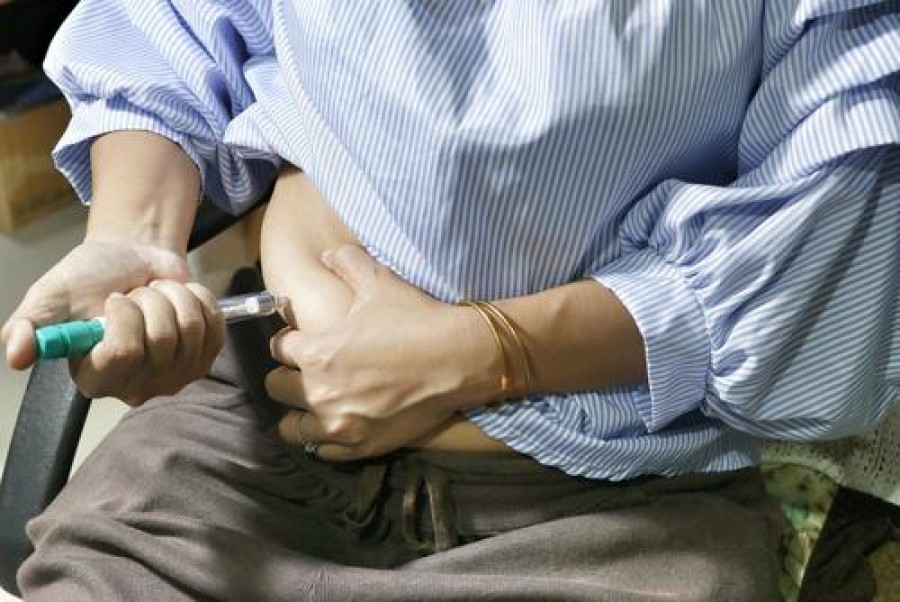What to expect during IUI Intrauterine Insemination?

If you have been trying to conceive for a while, without luck, it might be time to try some help.
Experts generally recommend that if you have been unsuccessful after a solid twelve months of tracking your cycle and trying to get pregnant when you should be ovulating, it is time to consider your next options.
For many this may involve fertility treatment, which is a confusing and all-encompassing term, that can actually mean quite a lot of things.
Your thoughts might naturally go first to IVF, but this may not be necessary.
If your reasons for not being successful are on the less complex side, you could have the option of some less intrusive (and expensive) processes.
The most common of these is IUI, or artificial insemination.
What is IUI (Intrauterine Insemination)?
Intrauterine insemination may conjure up images of a turkey baster, and that is basically what this involves.
Through this process, either your partner’s, or a donor’s sperm is inseminated through the neck of the cervix and into the uterus when you are ovulating.
The rates of success are lower than through IVF, however IUI is less invasive and less expensive, so if it is a viable option for you, you may consider taking it.
The insemination can be done following your natural ovulation cycle, or you may go through a process of artificial hormone stimulation to help bring ovulation on, using medication or injections.
The semen sample is taken from the male, cleaned and analysed to make sure it is tip-top, and then it is inserted into the uterine cavity using a speculum and a small catheter.
The IUI process is performed by a nurse and is usually painless, although might involve some discomfort, not unlike premenstrual cramping.
Who is IUI appropriate for?
If you or your partner has been diagnosed with unexplained fertility, hostile cervical mucus, minor sperm abnormalities or other male disorders, then IUI can be a successful option.
It is also an option if the sperm has been frozen for some reason to protect it, or if there is no living male partner in the relationship.
If you are considering sperm donation, either because of the poor health or risk of your partners’ sperm, or if you are a single woman or in a same-sex relationship, then this might be the first fertility treatment you try.
IUI requires the female partner to have little health or physical problems facing fertility, and will be more successful if she is not of an advanced age.
How much does it cost?
In Australia we are very fortunate to have fertility treatments subsidised by Medicare, and you will be out of pocket around $2000 for each cycle of treatment you have to undertake.
What are the risks or side effects?
The risks of infection from the insemination process are incredibly minor, but there are some risks from the fertility drugs if you are taking any.
Make sure your doctor talks to you about these depending on the specific drugs.
Some fertility drugs can increase your chances of having multiple births.
Before the insemination process, your doctor will check you over, including the health and number of follicles growing on your ovaries.
If you have too many, your doctor may cancel the insemination cycle, for your own health and the health of the potential babies.
It can be very hard for couples trying to conceive to face the idea of cancelling or ‘wasting’ a cycle, especially when then whole process already seems interminably long.
Make sure that you ask your doctor any questions you have about this, and listen to their recommendation.
What is the chance of success?
This is dependent on a number of factors, including your age and your reason for infertility.
Your rates are higher across multiple cycles, and if you are using fertility drugs as well.
The rates of success can vary greatly, statistically from around 10% to up to 50% depending on these individual factors.
So, you’ve been inseminated. What do you do next?
Well, it’s back to the old-fashioned processes then of standing on your head and crossing your legs.
Just kidding. IUI involves insertion of the sperm directly into the uterus, so unlike usual intercourse, the swimmers don’t have anywhere to go, they are already there.
Because the treatment is quick and non-intrusive, you can just go back to work or about your day as normal afterwards.
At this stage, you are letting nature, with a little bit of help, take its course and hopefully do its job.
The waiting process then is the same as for anybody trying to get pregnant; wait, hope and try not to think about it all the time.
Your doctor may order blood tests in the following week, and then a pregnancy test the week after.
While you are waiting to hear if the process was successful, take excellent care of yourself, both physically and mentally.
It would be completely normal to be very stressed at this time, and you should take it easy.
Some things you can do while you are waiting:
- Gentle exercise such as going for a walk or a swim, or taking in a yoga class. If you can include a gossip session with a close friend at the same time, this is a great bonus.
- Learn to cook something new that is mega-healthy for pregnant women. Look for creative ways to get calcium, iron, folate and in general lots of fruit and vegetables into your system.
- Take up knitting, crochet, macramé, scrapbooking, or calligraphy; anything that will keep your mind and your hands busy over the next week.
- Learn relaxation techniques such as mindfulness, meditation, or simple breathing exercises, or have an appointment for acupuncture.
- Write down in a journal what you are going through. It will make an excellent record when you look back on this whole process, and it will help you get the thoughts out of your head.
Try not to obsess over any pregnancy-like symptoms you might be feeling; these could be for any number of reasons, including your coming period, or from any fertility drugs you might be taking.
You might also be hyper-aware of any symptoms, so try not to focus on them too much, or let them get your hopes up too high.
Talk to people around you who might relate to what you are experiencing.
If you don’t know anyone, look into support groups or online forums; there is bound to be someone nearby or easily accessible that you can talk to.
Consider a professional fertility counsellor if you think this might be helpful for you as well.
You can also help yourself through the wait by allowing scheduled obsessing time.
This is similar to if you are looking for work; in that case sometimes your job is seeking employment, and the rest of the time you should knock off and relax about it.
You can allow yourself a certain time once or twice a day to obsess about your chances of conceiving, and then for the rest of the day knock off from trying to conceive, and focus on all the other parts of your life.
Allowing regular stress moments can really help you get through, and stop you worrying all the time.
IUI can be a great option for some couples, so talk to your doctor and get some more information to see if this might work for you.
Don’t let the image of the turkey baster turn you off!
Most Viewed
-
5 Common Methods of Contraception
Last updated On by Percy Oad -
How to Cope with Male Infertility
Last updated On by Alina -
What is the Difference Between Primary and Secondary Infertility?
Last updated On by Madison -
How to start a child-free life after infertility
Last updated On by Jacinta







